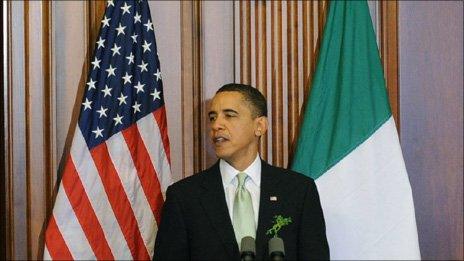Is Donald Trump the modern-day Andrew Jackson?
- Published
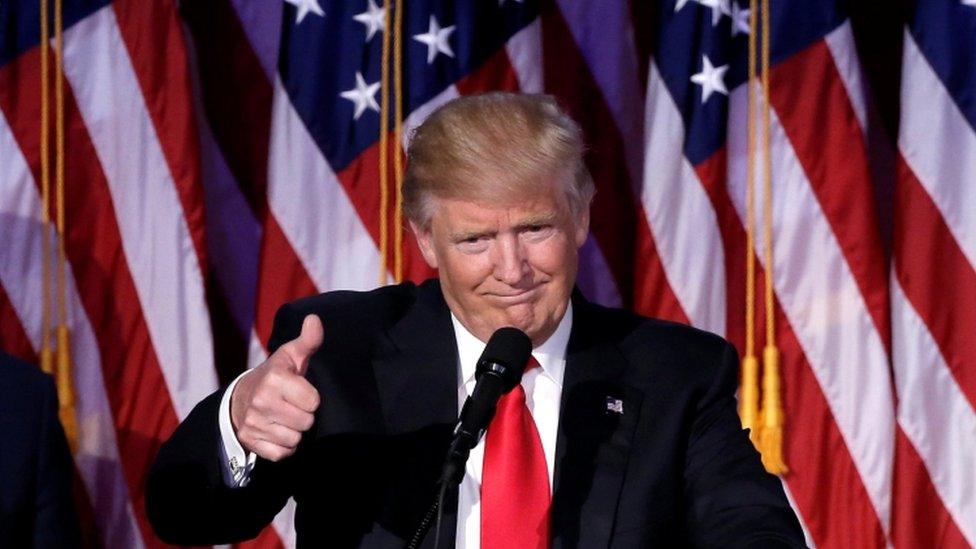
Comparisons in political style have been drawn between Donald Trump (above) and his 18th Century predecessor, President Andrew Jackson
Donald Trump's US presidential election victory has sent shockwaves through the political system.
But an interesting feature of his campaign has been the comparison drawn by some media commentators between the 70-year-old businessman's bullish demeanour and that of a former American President with roots in County Antrim, Andrew Jackson., external
Earlier this year, a New York Times opinion column wondered whether the secret of Trump's success was that he was channelling, external the chutzpah of the man whose parents hailed from Carrickfergus.
The former mayor of New York, Rudy Giuliani has also said Trump's victory is similar to Jackson's - describing it as "the people beating the establishment".
'Larger than life'
Jackson was born in 1767, but orphaned by the time he was a teenager. He served as US President from 1829 to 1837 and followed the fabled route "from log cabin to White House".
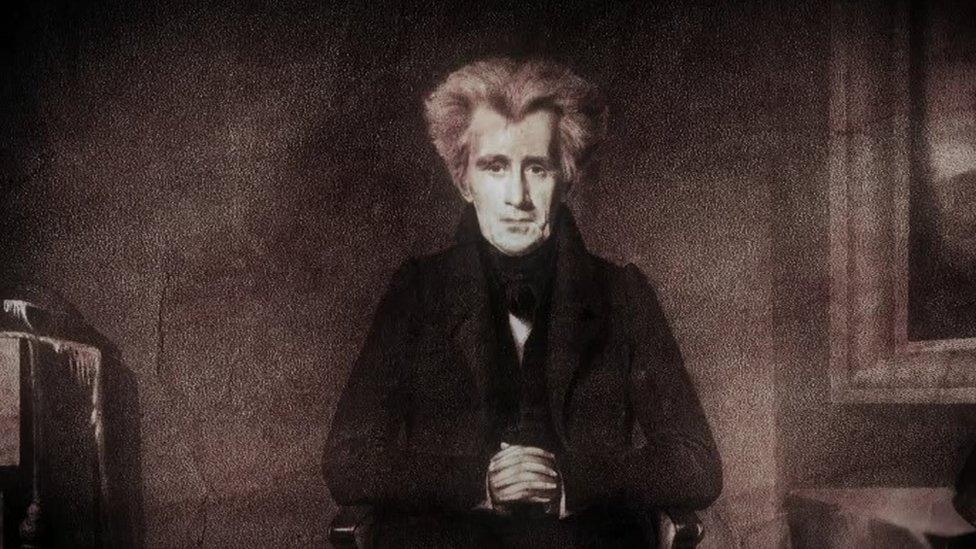
Andrew Jackson's parents were from County Antrim
Political historian Dr Eamon Phoenix told BBC News NI he believed there were similarities in terms of political style, despite Trump standing as a Republican. He described Jackson as "a swashbuckling man of action".
"He has a lot in common with Trump - both are larger than life characters who had unbridled tongues with which they lashed their opponents mercilessly," Dr Phoenix added.
Jackson features in the latest episode of Brave New World - USA, presented by BBC News NI's William Crawley and is considered by many to be the founder of the Democratic Party.
The broadcaster says he was "reviled and venerated in equal measure" and became the architect of the presidency as we know it today, rising from "nothing to the pinnacle of power".
'Fierce temper'
Travelling to The Hermitage, Jackson's eventual home near Nashville, Tennessee, he chats to its chief executive, Howard Kittell.
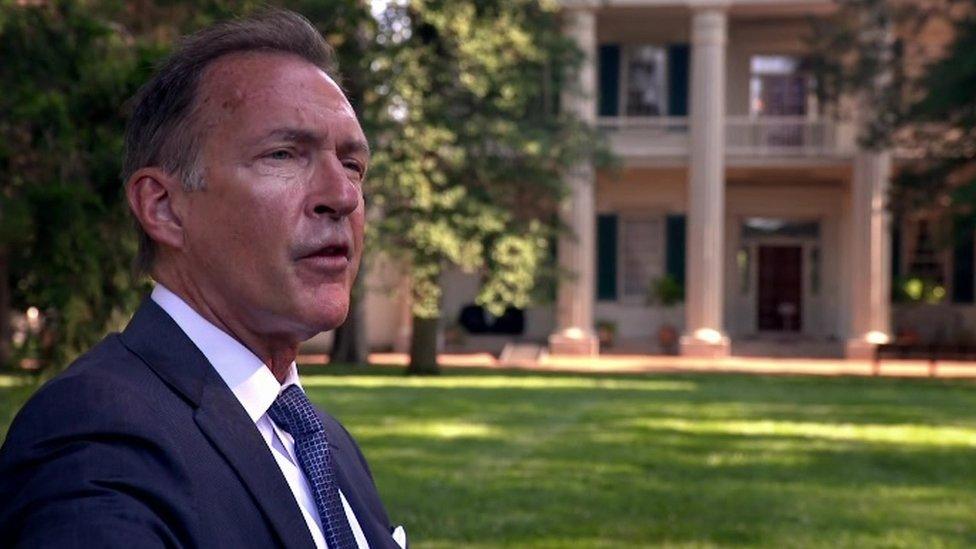
Howard Kittell is chief executive of The Hermitage, which was Andrew Jackson's home near Nashville
Known for his fierce temper, Jackson arrived in Nashville as an ambitious lawyer and by the age of 35 he was a judge and a major general in the Tennessee militia.
The triumph of Jackson and his troops against British forces in the Battle of New Orleans in 1815 catapulted him to fame across America and earned him the nickname 'Old Hickory'.
"When word of that victory reached the east coast, Jackson became a celebrity," Mr Kittell added.
"Primarily because he had, against all odds, for the second time defeated the mighty British army and rescued the country - it was a moral victory as well as a military victory and he became this rock star figure."
A household name, Jackson later ran for the presidency but was not always a popular figure with the establishment, as Mr Kittell explained.
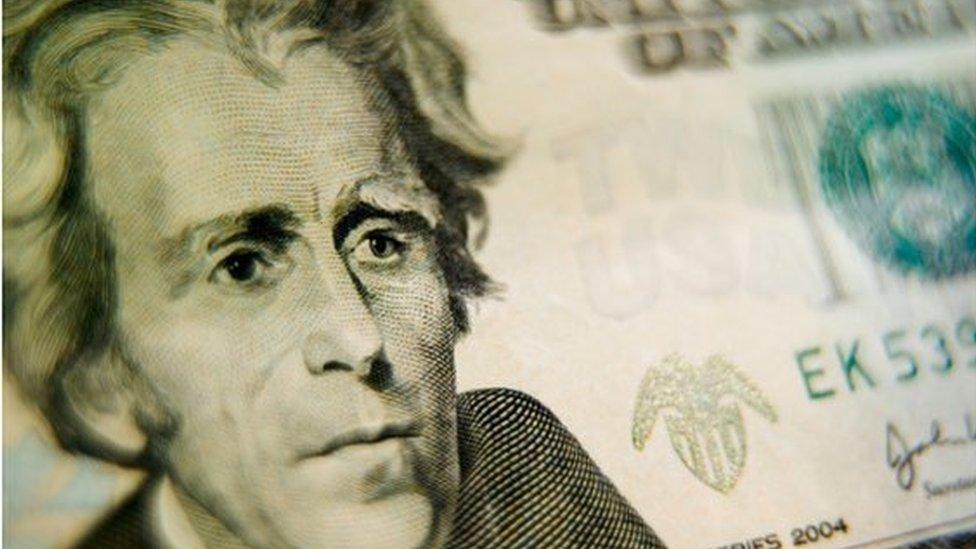
Andrew Jackson, president from 1829 to 1837, features on the $20 bill in America
"The east coast establishment was very nervous about Jackson," he said.
"The common man, the average citizen, wildly embraced him.
'Dark legacy'
"His first run for the presidency was in 1824, Jackson got the most number of popular votes, but got edged out when the vote finally had to go to the House of Representatives - through what he called a 'corrupt bargain'. He saw that as the political establishment denying the common man of the person they wanted to be president.
"That only reinforced his will to win the presidency in 1828."

The Hermitage plantation site was owned by Jackson until his death in 1845
Jackson, a slave owner, was also a controversial figure and Mr Kittell does not gloss over the displacement of Native Americans from their ancestral homelands through the Indian Removal Act of 1830 which he signed.
"The forced removal of native tribes was one of the lowest points in Jackson's career and one of the lowest points in our own history," he added.
"Tribes were forcibly removed from Mississippi, Alabama, Georgia, Tennessee, some of the other states as well - a very dark legacy."
But he believes that Jackson was America's first "modern president" and demonstrated to Europe that "the United States was a country to be reckoned with and not some experiment in self-government".
"He radically changed the presidency, he made it co-equal with Congress, he changed the banking policy of the United States well into the 20th century," he said.
"He is the only president who has an era of history named after him - the Jacksonian era, or Jacksonian democracy if you will."
Brave New World - USA will be broadcast this Sunday on BBC Two Northern Ireland at 21:00 GMT.
- Published9 November 2016
- Published10 November 2016
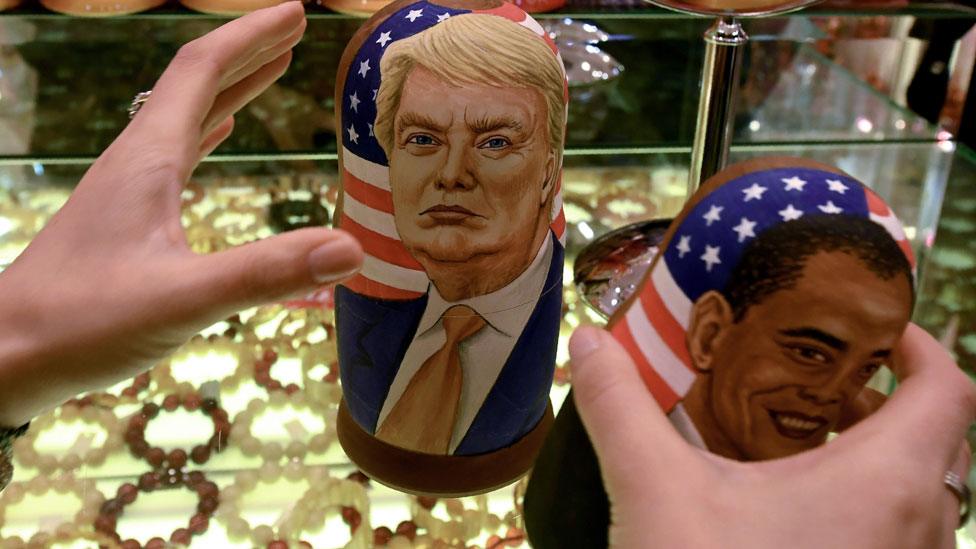
- Published10 November 2016
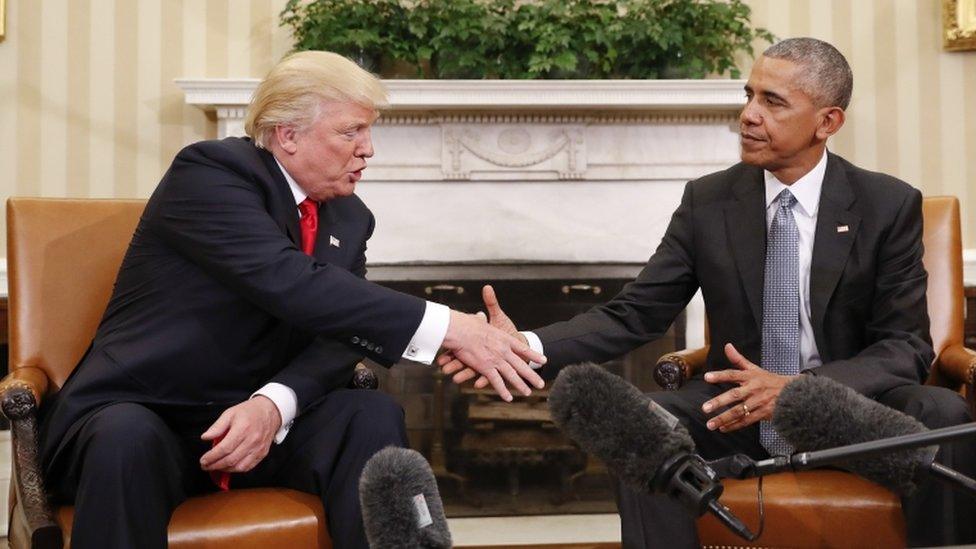
- Published21 April 2016
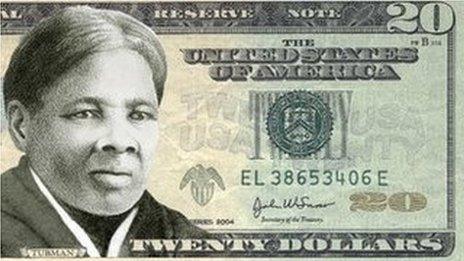
- Published26 April 2011
